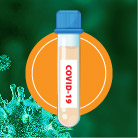≡

Too young for this: Facing Colorectal Cancer at a much younger age

Dr Clara Wu
| Director, Emergency Medicine Centre, and Consultant in Emergency Medicine |
Emergency Cases
What is Swine Flu?

What is Swine Flu?
Swine Flu is a respiratory disease in swine caused by Type A influenza. Swine Flu outbreak will occur from time to time among pigs. There are four main influenza subtypes cultured in pigs, namely H1N1, H1N2, H3N2 and H3N1. H1N1 is mostly discovered recently.
Is Swine Flu a new virus?
Yes! The recent outbreak of Swine flu in the United States has been confirmed as a type of H1N1 virus, which is a new virus formed from five different flu virus genes reshuffled. Its combination of genes is unique, and has never appeared in pigs or human influenza. Swine flu is possible to spread among people.
How is Swine Flu different from flu and avian flu?
Symptoms of Swine flu are similar to that of flu and avian flu, including fever, cough, sore throat, fatigue, headache and loss of appetite. Some people infected with Swine flu would show symptoms of vomiting and diarrhea. It is difficult to differentiate among the three types of flu by clinical symptoms alone; it requires viral genetic tests for a confirmed diagnosis.
Would eating pork make one infect with Swine Flu?
No, Swine flu is not spread through food, eating properly-handled and cooked pork and pork products is safe. Generally, cooking pork to an internal temperature of 160°F ( 71.1 °C ) can kill the Swine flu virus and other bacteria and viruses.
What are the routes of transmission of Swine Flu?
Swine flu can be directly transmitted from pigs to humans and spread from humans to pigs. Human transmission is also possible. Transmission routes of Swine flu are believed to be the same as that of seasonal flu, which are mainly through coughing or sneezing. Humans may also get infected with a flu after contacting an object with Swine Flu viruses and then touching their nose or mouth.
Are there any medication treatment for Swine Flu?
Yes, medications against influenza such as Tamiflu and Relenza are effective for treating and preventing Swine Flu. Patients should take enough rest and drink plenty of water, while supportive therapy may relieve symptoms.
How fatal is Swine flu?
The casualty risk of Swine flu is difficult to predict. According to the World Health Organization (WHO), Mexico, United States, Canada, Spain and the United Kingdom have had confirmed cases of human swine flu, in which Mexico has casualty cases. The local health bureau said that the infected patients would have acute pneumonia, acute respiratory distress and even respiratory failure which need to use a breathing machine. Due to limited information available, it is not yet known if the death cases were caused by the virus itself or other complications.
Can flu injection prevent Swine Flu?
As the antigens of H1N1 Swine flu virus are very different from those of human H1N1 viruses, seasonal flu vaccines do not provide protection against H1N1 swine flu viruses.
Are there ways to prevent swine flu?
- Keep hands clean and wash hands properly. If your hands have no obvious dirt, use alcohol-based hand rub to sanitize your hands
- Avoid touching your eyes, nose or mouth, because germs spread in these ways
- If your hands are contaminated by respiratory secretions, for example, after sneezing or coughing, wash your hands immediately with soap
- Cover your nose and mouth when sneezing or coughing
- Do not spit, wrap your mouth and nose secretions with tissue paper, and dump them into a covered trash bin
- If you show symptoms of respiratory tract infections or fever, you should wear a mask and seek for medical help as soon as possible
- If you show flu symptoms, do not go to work or school
- Those who go to infected places should bring surgical masks to use when needed
- If you show symptoms of fever or flu-like symptoms after returning from overseas, you should seek for medical help immediately and tell your doctor about the travel records
What are the contingency plans for the Emergency Medicine Centre of our hospital?
- Our hospital has raised our alert level to Serious level, and we have taken measures to prevent swine flu according to the guidelines by Department of Health
- All patients with respiratory diseases should wear a surgical mask
- All patients need to undergo ‘temperature screening’
- Patients with fever need to undergo ‘flu triage screening’
- High-risk patients would be isolated in negative pressure rooms for treatment








